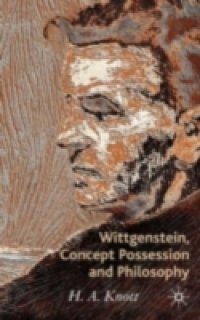In this book H. A. Knott develops an original yet highly readable approach to Wittgensteinian philosophy, moving from familiar territory onto uncharted terrains.The central topics of exploration revolve around the nature of concept possession - what it means to say that one has a concept - and the nature and difficulties of reflecting on our concepts within philosophy. The author argues that the possession of concepts is integral to our very constitution as persons and to our consciousness. Hence the programme of conceptual clarification formulated by Wittgenstein is no mere intellectual exercise but a struggle from the midst of our lives to see more clearly into our own nature and into our place in the world.The book is written in the form of a dialogue between Lato and Crates - the alter-egos of Plato and Socrates - which holds the discussion within a perspective that looks back onto the origins of Western philosophy whilst simultaneously aiding the accessibility and readability of the work's argument.

